
In 2023, I read 37 books, including 3 books in French and 2 Korean graphic novels. That’s quantitatively down from last year, mostly due to a couple of books that oversold and under-delivered that made me skip reading a few weeks here and there (it doesn’t always happen, but one bad book can really put a dampener on the entire bookshelf).
First Place: The Order of the Day by Éric Vuillard
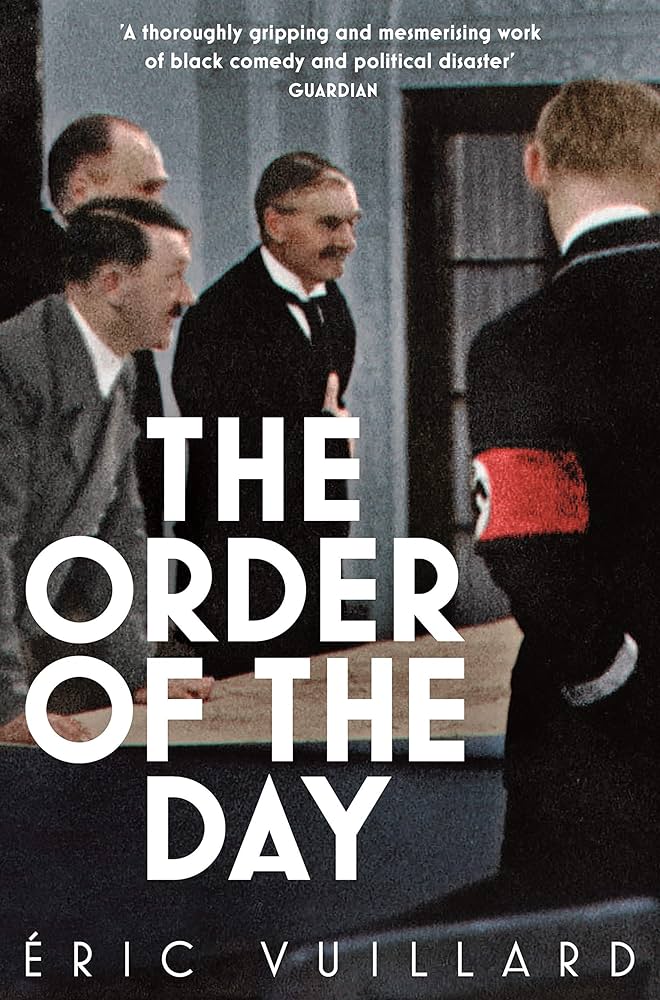
In a world where more than 500,000 books are published annually (just in English and just in the United States), it is so dreadfully rare to run into something completely novel, alien, soul-crushing and yet delightful. French author Éric Vuillard’s work falls into this near-barren category. Extraordinarily crafted into compact stories, Vuillard interrogates the turning points of political history and uses broiling irony and droll juxtaposition to place justice as he conceives it into the strongest possible relief.
I started earlier this year with The Order of the Day (French title: L’Ordre du jour), which won France’s top literary prize and covers the Nazi takeover of Austria in the Anschluss. Vuillard excoriates the French political and industrial leadership during the crisis, writing with acidic lucidity juxtaposing the historically important junction underway with the decadent idiocies under debate in the National Assembly during the period. Every sentence forces a gasp, a scream and a question: what could they be thinking? And by extension and through the looking glass, what are we thinking every day? Are we making the same mistakes?
This book triggered a deep dive across his work, including his most recent 2023 book An Honorable Exit (French title: Une sortie honorable), The War on the Poor (French title: La guerre des pauvres), and Congo (in French, untranslated to English). I also have La Bataille d’Occident (also untranslated) sitting on my desk.
Vuillard often spends years developing his books, and for An Honorable Exit, he spent 12 years researching and condensing the history of the French in Vietnam into a 208-page book. His precision though is tempered by a desire for the telling anecdote or juxtaposition, and that has placed him in the crosshairs of more historically-minded writers who find that his embellished stagings are likely too perfect to meet the most exacting standards of fairness and accuracy.
Maybe a bit more accuracy would complicate our picture and make his books more factual. Truthisness is a real risk in a world where alternative facts are always percolating. But as a writer, I have to say, it’s rare craftsmanship when the carefully-tuned embellishment, narrative and scenography can transform what is otherwise dry history into a searing indictment of humanity. Go along for the ride, and feel free to read the books many-fold longer for the details.
Second Place: Cadillac Desert by Marc Reisner
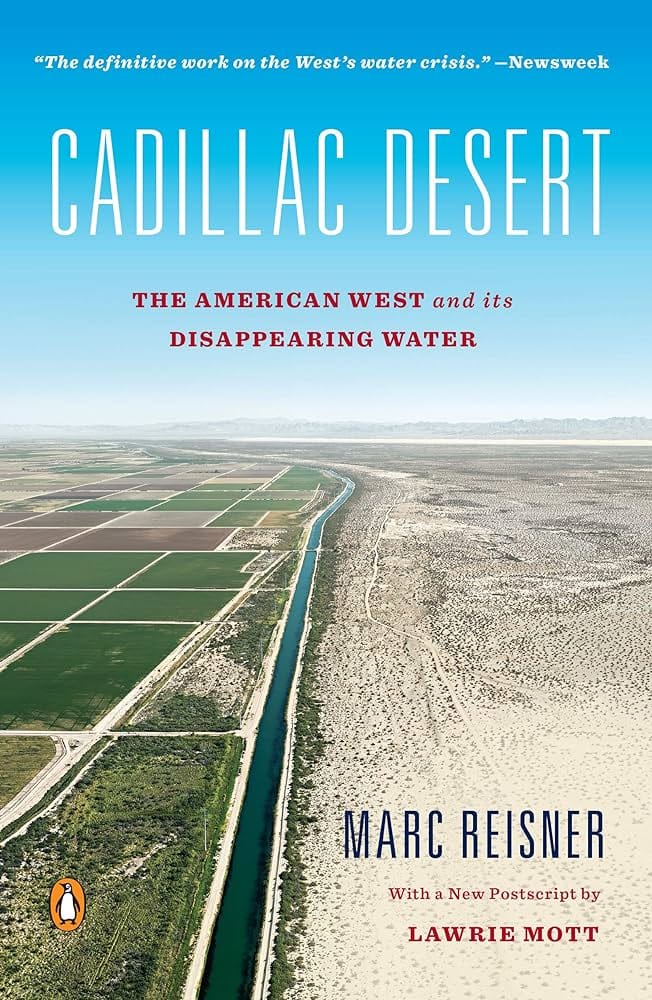
This is a classic work on the politics of ecology, water and the American West, first published in 1986 and expansively lengthened across multiple new editions by the author and later, his family. The expansions are awful and drown the original narrative, but the original text is an absolute gem of what might be dubbed bureaucratic history. Shave the last 100-200 pages.
Reisner covers the overwhelming challenges facing American colonists looking to tame the West and transform it into an agricultural bonanza. With limited water and weak soil, the West would seem to be a highly unlikely region to transform into America’s breadbasket, and yet, that is precisely what happened. Over the course of more than two centuries, American engineers would conceive and build one of the greatest public works plans ever fathomed, on par with the extensive system of Roman aqueducts and China’s Grand Canal.
Covering everything from the rise of Los Angeles to the engineering and construction of the Hoover Dam to thousands of other dams and waterworks across the West, Reisner shows just how artificial and brittle the West’s climate system has become under the extraordinary efforts of human engineers. Written 40 years ago, the effects of those changes are increasingly visible: the Colorado River slowing to a trickle and whole regions of the Southwest becoming potential disaster zones from a growing scarcity of water.
More damning than the systems themselves though is Reisner’s fearless investigation into the politics of these waterworks, and how often they have been designed for just a few families or companies in mind rather than the millions of denizens that now call these regions home. Much of the book is infuriating, and only made more so by news stories that continue to show the inequality of these systems for sustaining American life in the region. The problem of water in the West is extraordinarily layered and challenging, and Cadillac Desert still holds its place as the dominant work in the field.
Third Place: Waiting to be Arrested at Night by Tahir Hamut Izgil
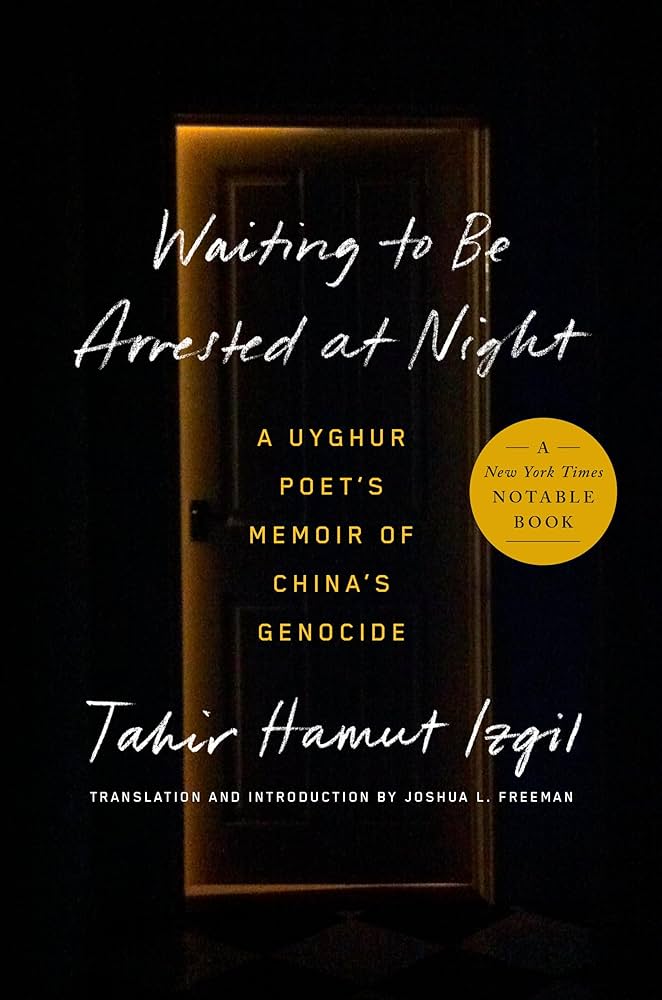
This book was hotly anticipated in 2023: a celebrated Uyghur poet writing a memorial and retrospective on his life, his journey to America and the changes that have been wrought to Xinjiang over the past decade as China increasingly attempts to integrate and dissolve its unique culture. The book does not disappoint.
The parallels between Izgil’s experience and the details of 1984 by George Orwell are obscenely obvious. The latent fear of arrest going on over days and months, the slow and unexplained disappearance of networks of friends and intellectuals, the bureaucratic systems of control and intimidation, the human narrative of love in the face of adversity — the whole book acts as a personal reduction of 1984 to a real place and to a real person. And it’s all the more powerful for that autobiographical strength.
The book eschews policy prescriptions in lieu of descriptions of life and the meaning of poetry in the context of Uyghur culture. Here’s an ancient culture with antecedents in the Middle East, Central Asia and East Asia that has built a vibrant mélange of identity, only to be eviscerated by bureaucrats from afar with little justification or balance. Coping means not just trying to protect their culture, but also the people that practice it.
Izgil escaped a few years ago, and finally got his thoughts on paper. We are all the better for it. But it’s a story that covers decades of developments — decades that will never be replaced, or repaired. In that way, it’s a tragedy, for this culture and the world at large.
Fourth Place: My Fourth Time, We Drowned by Sally Hayden
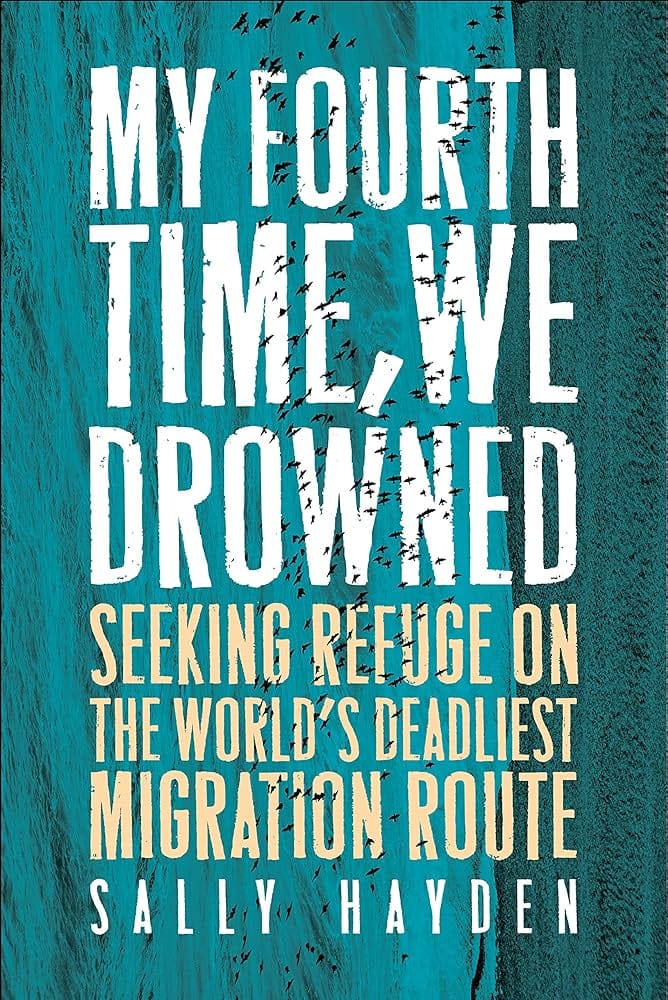
Hayden, a long-time journalist of migration to Europe, wraps up years of reporting into a cogent book that underscores the horrors of migration from Africa and the Middle East while also eviscerating the hypocrisy of European Union officials who strenuously emphasize human rights while also doing everything in their power to prevent them from being acted upon. It’s a book where there are very few good choices and tragedy abounds across every stage of life.
Shock is likely to be the typical reader reaction. Shock at the brutality of migrant camps in places like Libya, where torture, starvation and summary executions run rampant. Then there’s the shock at how ineffective international organizations are in countering these atrocities, despite massive budgets. But perhaps the greatest shock is just how little these stories rise to the surface of our attention — about how dozens, hundreds and even thousands of people can die with nary coverage in a major European newspaper.
Migration is a painfully fraught topic, one that goes to the core of most Western politics these days. Hayden shows what feckless hypocrisy looks like from governments unwilling to pick a course. No one has an answer, so politicians give a pleasant soundbite and then hope the problem will just disappear. But it never does, and the consequences both politically and morally are dire as Hayden aptly shows here.
Fifth Place: Le Mage du Kremlin by Giuliano da Empoli
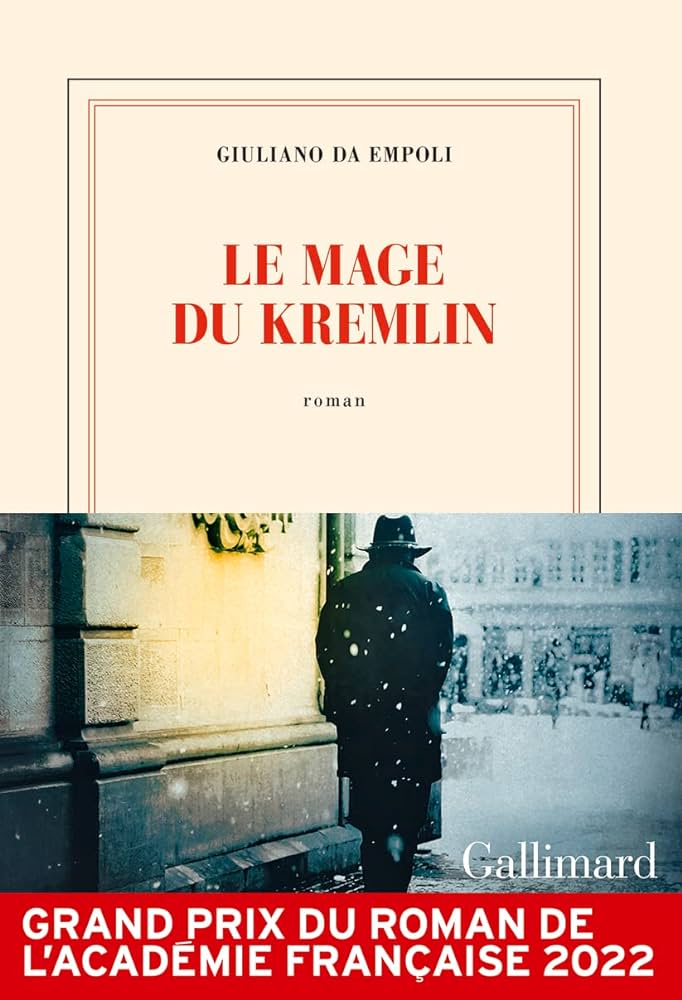
Le Mage du Kremlin (English title: Wizard of the Kremlin) was newly translated this year into English, and I managed to hear da Empoli speak in New York a few weeks ago where I picked up a copy of this novel. Da Empoli has done something wondrous here, offering us a deep look into the psyche of the Putin regime in Russia through the perspective of his chief propaganda advisor, who speaks in second person narration for most of the novel.
Da Empoli is an expert observer of Russian politics, but much in the style of Vuillard, rather than trying to offer a perfectly factual and dry history of Russia (many of which exist), he attempts to synthesize his understandings of the emotions, motivations and positioning within the Putin regime into a novel that explains far more than any history could hope to do.
What the author describes better than almost any other writer on the subject I have seen is really grappling with the horror and chaos of the 1990s when Russia suddenly transitioned from communism into the free-market economy through so-called shock therapy. The ennui, aimlessness, fear and uncertainty combine to make a political figure like Putin almost inevitable. From there, it’s about tweaking and evolution, adapting the image and model of the New Czar to the changing circumstances that Russia repeatedly finds itself in.
That emotional texture is crucial for understanding why leaders and countries do what they do, but are almost impossible to write about with the kinds of archival citation standards necessary for academic history. Da Empoli splits the difference, and we are all the better for it. The book unintentionally came out in French just a few months after Russia’s invasion of Ukraine, and at least in France, it was something of a publishing phenomenon. It’s not hard to see why — few could have integrated such complexity into such a cogent and easy story.
Honorable Mentions
- Humanly Possible by Sarah Bakewell — I really enjoyed Bakewell’s newest book, which covers the development of humanism and humanistic ideas from the 1300s into the 1600s or so in Europe. It’s a cosmopolitan and interesting cast of characters, albeit with a canvas that is just a bit too big for a single volume to cover.
- Emergent Tokyo: Designing the Spontaneous City by Jorge Almazán — Tokyo and Japanese cities hold a special charm for many Americans who visit, but what really makes them such a delight? Far from seeing a top-down design, Almazán and his team unearth a number of accidental policy developments that unintentionally created unique spaces for human habitation and socialization. While by no means a comprehensive assessment, the book offers a depiction of how emergent serendipity can create urban beauty.
- The Existential Pleasures of Engineering by Samuel C. Florman — an interesting and hard-to-find book that offers a path from existentialism to the will to engineer. We build, grow and evolve to escape our narrow confines and make our presence known. We’ll never stop tinkering with Mother Nature, since to do so would be to give up what really makes us human.
For more great books, check out my “best writing” posts from previous years.